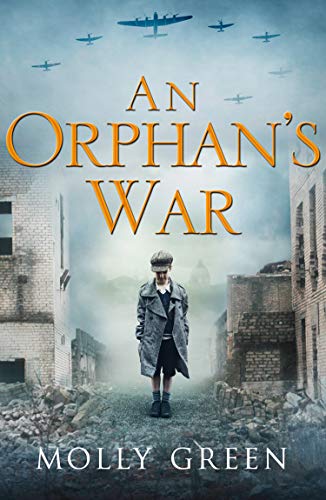9 Best Historical Fiction Books You Must Read for a Journey Through Time
If you love diving into the past while getting lost in a gripping story, historical fiction is your perfect match. This genre transports you to different eras, blending real historical events with imaginative narratives. Whether you’re fascinated by ancient civilizations or more recent history, there’s always a tale that will captivate your mind and heart.
In this article, you’ll discover the 9 best historical fiction books that offer a rich tapestry of history and storytelling. These books aren’t just entertaining; they provide a deeper understanding of the times they portray, making history come alive in ways textbooks can’t. Get ready to embark on literary journeys that will leave you both enlightened and enthralled.
1. “The Nightingale” by Kristin Hannah
“The Nightingale” by Kristin Hannah is a compelling tale set against the backdrop of World War II.
A Tale of Resilience During World War II
Witness the story of two sisters, Vianne and Isabelle, who navigate the treacherous landscape of Nazi-occupied France. Vianne is determined to protect her family at any cost, while Isabelle joins the French Resistance, risking her life for freedom. Both women demonstrate remarkable resilience and bravery. Hannah’s vivid descriptions and emotional depth immerse you in the era, showcasing both the horrors and the acts of heroism that defined the time.
Critical Acclaim and Reader Reception
“The Nightingale” has garnered widespread acclaim from critics and readers alike. It is praised for its gripping narrative and well-developed characters. The novel has received numerous awards and accolades, including being named a Best Book of the Year by various publications. Readers are captivated by Hannah’s ability to blend historical accuracy with engaging storytelling, making it a standout in the genre of historical fiction.
2. “All the Light We Cannot See” by Anthony Doerr
Intersecting Lives in Nazi-Occupied France
“All the Light We Cannot See” intertwines the lives of Marie-Laure, a blind French girl, and Werner, a German soldier, during World War II. Marie-Laure’s path leads her to Saint-Malo after fleeing Paris, while Werner’s expertise in radio technology takes him to the same coastal town. Their stories come together in a compelling narrative that explores the resilience of the human spirit amid the horrors of war. Doerr’s rich descriptions and intricate plot make you feel the tension and tragedy of their intersecting journeys.
Awards and Recognition
This masterpiece has garnered multiple accolades. It won the 2015 Pulitzer Prize for Fiction, reflecting its literary excellence. Doerr’s work also received the Andrew Carnegie Medal for Excellence in Fiction and was a finalist for the National Book Award. The novel’s widespread acclaim is a testament to its powerful storytelling, meticulous historical detail, and emotional depth. These awards highlight why “All the Light We Cannot See” is a must-read in historical fiction.
3. “The Book Thief” by Markus Zusak
Markus Zusak’s “The Book Thief” takes you to Nazi Germany, exploring the life of a young girl and the power of words in the darkest of times.
The Power of Words in Nazi Germany
“The Book Thief” underscores how words can influence, comfort, and destroy. Liesel Meminger, the protagonist, steals books to escape the horror surrounding her. Each book she reads offers a respite and a tool for resistance against Nazi oppression. Zusak’s narrative vividly illustrates how propaganda fueled the Nazi regime and how the written word became a silent rebellion against tyranny.
Unique Narrative Perspective
Narrated by Death, “The Book Thief” provides an unusual and poignant viewpoint. Death’s narration adds layers of reflection and humanity, offering a unique lens through which you view the events. This perspective intensifies the emotional impact, creating a profound connection between you and the characters, making their joys and losses more palpable.
4. “Wolf Hall” by Hilary Mantel
A New Take on Henry VIII’s England
Discover the turbulent period of Henry VIII’s reign through the eyes of Thomas Cromwell in “Wolf Hall” by Hilary Mantel. Mantel masterfully reimagines the political landscape of 16th-century England. She portrays Cromwell’s rise from a blacksmith’s son to the king’s most trusted advisor. The intricate plotting, power struggles, and personal dynamics are vividly captured. Mantel’s portrayal transforms historical figures into complex, relatable characters. If you’re fascinated by Tudor history, this book offers an immersive experience.
Impact on Historical Fiction Genre
“Wolf Hall” revolutionized the historical fiction genre, earning both the Man Booker Prize and the disction as a literary masterpiece. Mantel’s meticulous research and unique narrative style set a new standard in the genre. By delving into the psyche of a historical figures like Cromwell, she offered depth and nuance rarely seen before. Her work emphasizes the human aspects behind historical events, influencing how subsequent historical novels portray their subjects. If you’re exploring the best in historical fiction, Mantel’s work is essential reading.
5. “The Pillars of the Earth” by Ken Follett
“The Pillars of the Earth” by Ken Follett is an epic tale set in the Middle Ages, weaving intricate narratives around the construction of a cathedral.
Medieval England and the Building of a Cathedral
Set in 12th-century England, this novel dives into the lives of its characters against the backdrop of political turmoil. You’ll explore the complexities of medieval society, witnessing the arduous process of cathedral building. Follett masterfully illustrates the era’s architectural innovations and the sheer determination of those involved. Through characters like Tom Builder, you’ll feel immersed in the blood, sweat, and tears poured into the monumental task of cathedral construction.
Lasting Influence in Historical Fiction
Follett’s novel redefined what historical fiction could achieve. “The Pillars of the Earth” influenced many subsequent works in the genre, setting a high bar for research and intricate plotting. You’ll find that its impact extends beyond literature, inspiring TV adaptations and even a dedicated video game. By blending real historical events with compelling storytelling, Follett created a vivid tapestry that continues to captivate readers worldwide.
6. “Outlander” by Diana Gabaldon
“Outlander” blends time travel with rich historical details, delivering an unforgettable literary experience.
Time Travel Meets Scottish History
Follow Claire Randall, a World War II nurse, transported back to 1743 Scotland. Witness her struggle to adapt to a vastly different era while entangled in Jacobite politics. The vivid descriptions of 18th-century Scotland add authenticity, drawing readers into the rugged Highlands.
Adaptations and Fan Base
Discover how “Outlander” inspired a hit TV series, expanding its devoted fan base. The show’s faithful adaptation has fueled a massive online community, eager for every new book and episode. Join millions across the globe captivated by Claire’s time-crossing adventures.
7. “The Help” by Kathryn Stockett
Civil Rights Era Through the Eyes of Domestic Workers
Explore the struggles and resilience of African-American maids during the Civil Rights era through the eyes of three courageous women. Stockett’s novel delves into the intimate lives of these domestic workers and their complex relationships with their employers in 1960s Mississippi. You’ll gain insight into the harsh realities faced by the maids as well as their extraordinary bravery in confronting systemic racism. This poignant narrative sheds light on both the individual and collective fight for racial equality.
Controversies and Discussions
Despite its acclaim, “The Help” has sparked significant debate. Critics argue it perpetuates stereotypes and appropriates Black voices, raising questions about who gets to tell certain stories. These controversies have fueled discussions on racial representation in literature, making the book a thought-provoking choice for readers. Engaging with these discussions can enhance your understanding of the broader cultural impact of the novel, encouraging a deeper reflection on its themes and characters.
8. “War and Peace” by Leo Tolstoy
Epic Tale of Russian Society During Napoleonic Wars
Explore the intricate tapestry of Russian society in “War and Peace” as Leo Tolstoy masterfully blends historical narratives with fictional lives. Set during the tumultuous Napoleonic Wars, this epic novel weaves through the lives of aristocratic families, showing their struggles, triumphs, and transformations. You’ll witness the grandeur of historical events alongside deeply personal stories, creating a rich, immersive experience.
Historical and Literary Significance
Recognized as one of the greatest novels ever written, “War and Peace” offers unparalleled insights into Russian culture and history. Tolstoy’s work transcends the boundaries of time, painting a vivid picture of early 19th-century life while addressing universal themes of love, war, and destiny. Its meticulous research and profound philosophical insights make it a cornerstone of historical fiction. Dive into this monumental work to understand its lasting impact on literature and its continued relevance in today’s world.
9. “A Tale of Two Cities” by Charles Dickens
The Turmoil of the French Revolution
Set against the dramatic backdrop of the French Revolution, “A Tale of Two Cities” vividly portrays the chaos and violence of the era. You’ll experience the stark contrast between Paris and London through Dickens’s masterful narrative, which captures the fear and fervor that gripped the streets of Paris. The novel presents a haunting depiction of revolutionary fervor with unforgettable scenes like the storming of the Bastille and the grim excesses of the guillotine.
Dickens’s Approach to Historical Fiction
Dickens’s unparalleled skill in weaving historical context with fictional characters sets “A Tale of Two Cities” apart. You’ll be drawn into the intertwined lives of Charles Darnay, a French aristocrat, and Sydney Carton, a dissolute English lawyer. Dickens uses these characters to explore themes of sacrifice and redemption against the historical upheaval. His detailed descriptions and compelling narrative make the novel a cornerstone of historical fiction, illustrating how personal dramas unfold within larger historical events.
Conclusion: The Unending Appeal of Historical Fiction
Historical fiction continues to captivate readers by blending rich narratives with real-world events. These nine books offer a unique window into different eras, allowing you to experience history through compelling storytelling. Whether you’re drawn to the drama of war, the intricacies of political intrigue, or the personal struggles of individuals, there’s a historical fiction novel that will resonate with you. Dive into these stories and let them transport you to times and places far removed from your own.






